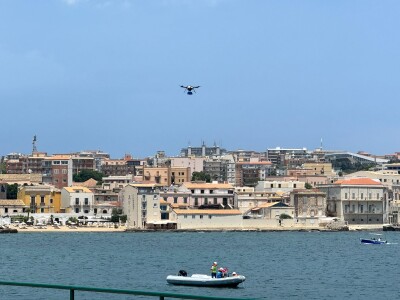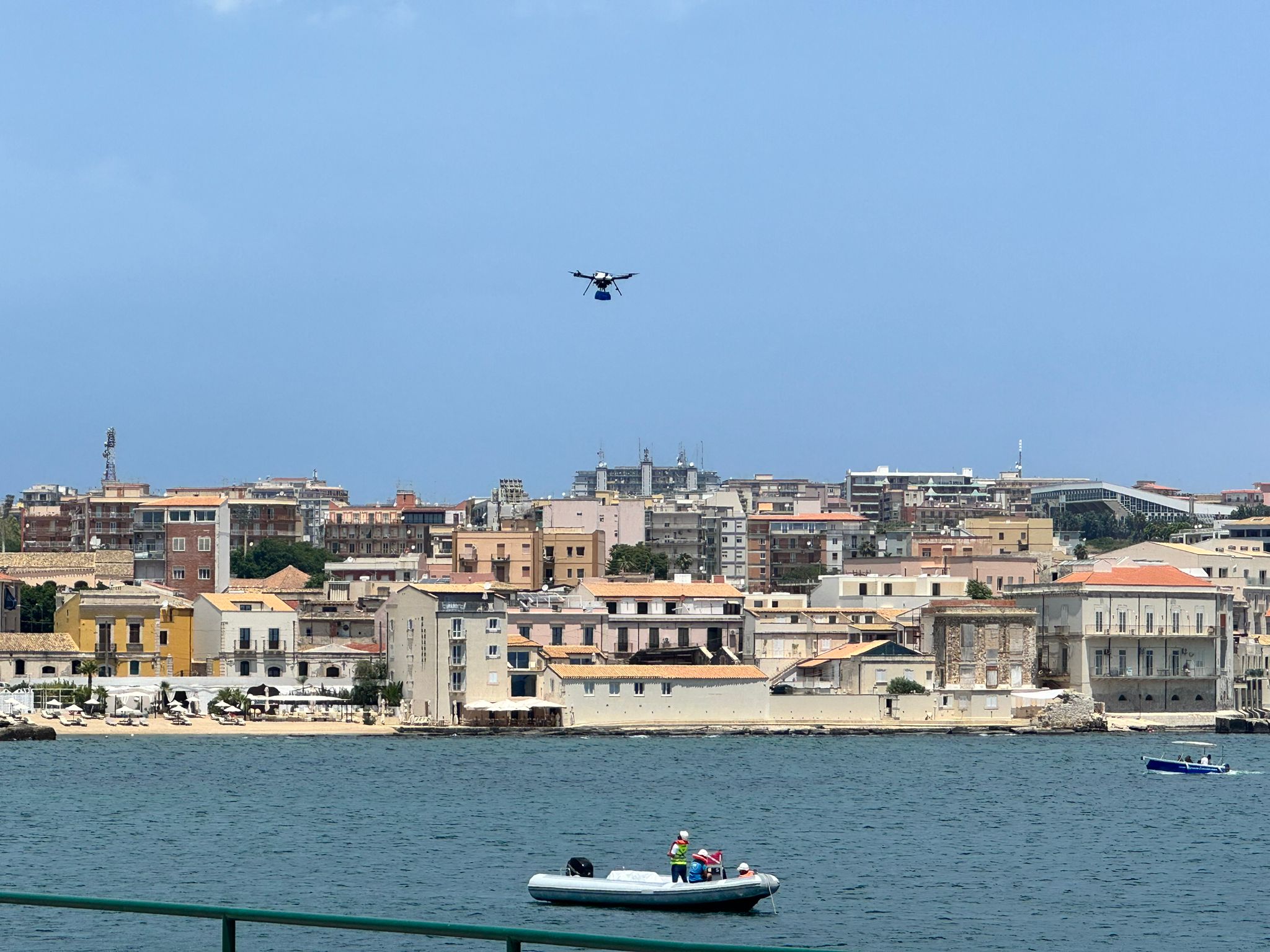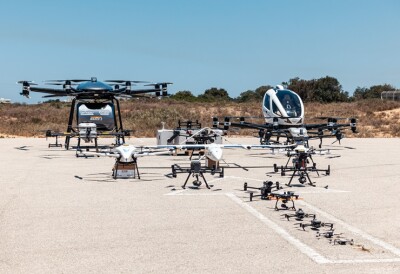Since the first commercially viable drones entered the scene around 2013, drone deliveries have been perceived as one of the sweet spots of the nascent aviation industry. Unfortunately, the state of the regulation and to some extent the technology, has prevented this useful service reaching a higher level of availability, frequency and reliability.
The issue of delivering packages to individual households has been the focus in the U.S. given the size of the Total Addressable Market (TAM) and the fact that the consumer is the target of most business initiatives that are based on volume. The problem with delivering to an address is that every house and dwelling is different and therefore every single delivery is a one-off job, seriously impeding not only scalability but also affordability.
Entrepreneurs around the world are also targeting this lucrative sub-industry but the big difference is that these startups are not targeting the end-user but companies or public entities, like the postal service, that require distribution of small and medium packages but not necessarily to a home address but to a distribution center on a B2B approach.
Speedbird Aero with offices in Brazil and Portugal is the best example of a successful business model that is not only successful but scalable and internationally viable. Speedbird leadership is not only aggressive in its goals but places a huge amount of R&D resources in complying with international standards and regulations to satisfy their local partner’s requisites.
Italy
Last week Speedbird announced two historic milestones achieved in collaboration with UrbanV in Italy: the country’s first BVLOS shore-to-ship drone delivery in Siracusa, and the first BVLOS drone logistics operation conducted within an active international airport at Fiumicino. These achievements demonstrate the power of advanced automation, regulatory alignment, and cross-sector collaboration in deploying real-world, scalable drone logistics.
In Ortigia, Siracusa, UrbanV and Speedbird Aero executed Italy’s first fully automated shore-to-ship drone delivery beyond visual line of sight (BVLOS). Conducted during the 3rd U-Space Workshop – The Enabler of UAS Operations, the operation marked a major step in urban-maritime drone logistics.
A DLV-2 B35 drone, operated autonomously via Speedbird’s Cloud Control Station, lifted off from Ortigia dock, followed a pre-defined BVLOS route over open water, and precisely delivered its payload via an integrated winch system to a ship anchored offshore. The mission was executed in coordination with the Port Authority of Siracusa, Municipality of Siracusa, and with full regulatory support from ENAC.
At Leonardo da Vinci International Airport (FCO) in Rome — one of Europe’s largest and busiest hubs — Speedbird Aero and UrbanV successfully carried out Italy’s first experimental BVLOS logistics operations inside an active airport environment. The tests took place at UrbanV’s UV-0 Test Vertiport, located within the Pianabella Regulatory Sandbox, under the guidance of ENAC (Italian Civil Aviation Authority).

Using Speedbird’s DLV-2 drone system, the teams executed two fully automated logistics scenarios:
- Autonomous drone landing for payload delivery
- Precision winch-based delivery without drone landing
These operations were seamlessly integrated into the airport’s ongoing activity and managed in full coordination with ENAV (Italian Navigation Services) and ADR (Aeroporti di Roma) — without disrupting scheduled flights or airport operations. All missions were executed by UrbanV-trained remote pilots, co-pilots, and hub operators.
United Kingdom
Specifically in Scotland, the collaboration between Speedbird Aero, and Royal Mail focuses on a drone delivery project in a remote area where delivery of the mail has been a logistical nightmare. The pilot initiative was launched in partnership with Skyports Drone Services, Royal Mail, and local authorities in the Orkney Islands. The Drone that was used was Speedbird’s reliable workhorse, the DLV-2, developed with a high payload capacity (up to 10 kg) and ability to operate in challenging weather conditions, which are common in the Orkney archipelago.
The purpose of the agreement was to improve mail delivery efficiency and reliability across remote islands like Graemsay and Hoy, where ferry schedules are often disrupted by weather. The project began in July 2023 and was scheduled to run as a three-month trial, with the potential for permanent adoption if successful. Parcels are transported by drone from Stromness (mainland Orkney) to island post offices. From there, postal workers complete the deliveries as usual.
Fully electric drones help reduce carbon emissions and reliance on fossil-fueled vehicles. This initiative is part of a broader push by Royal Mail and Skyports to explore advanced air mobility solutions for logistics, especially in hard-to-reach areas. Speedbird Aero’s involvement highlights its growing international footprint and the versatility of its drone platforms.
Singapore
Speedbird collaborates with Skyports and the Port of Singapore (MPA) to perform 24/7 drone deliveries and pickups. Use cases include cargo transport, fuel sampling, and document transfer between anchored ships and onshore facilities.
This positions Singapore as a pivotal location for the next-generation unmanned logistics solutions in maritime and port environments.
Israel
Speedbird Aero is also actively involved in drone operations in Israel, particularly in medical logistics and airspace management using a DLV-2 drone to successfully test the transfer of 3.8 kg of blood between Rambam Health Care Campus in Haifa and Galilee Medical Center in Nahariya, covering a distance of 25 kilometers. These flights were equipped with a parachute recovery system, ensuring safe BVLOS operations.
Since 2021, Speedbird has participated in the Israel National Drone Initiative (INDI), partnering with Israeli companies to oversee autonomous drone operations within challenging urban landscapes.
All of these activities don’t even mention their successful business model in Brazil, where they have established routes across bodies of water in a service that is now routine and reliable.
Speedbird’s international presence reflects its global expansion and its commitment to integrating drones into critical infrastructure and emergency response systems.
There is no need to attempt to deliver packages to the door of the end user while the technology is still in its infancy and the regulation is still restrictive. Speedbird Aero has proven in five different jurisdictions and under five very different climates and challenges that drone delivery is not only possible, but a viable and potentially profitable business model.
We only hope US manufacturers learn the lesson and stop the nonsense of trying to deliver to private lawns and focus on accumulating experience with less challenging scenarios.














Comments